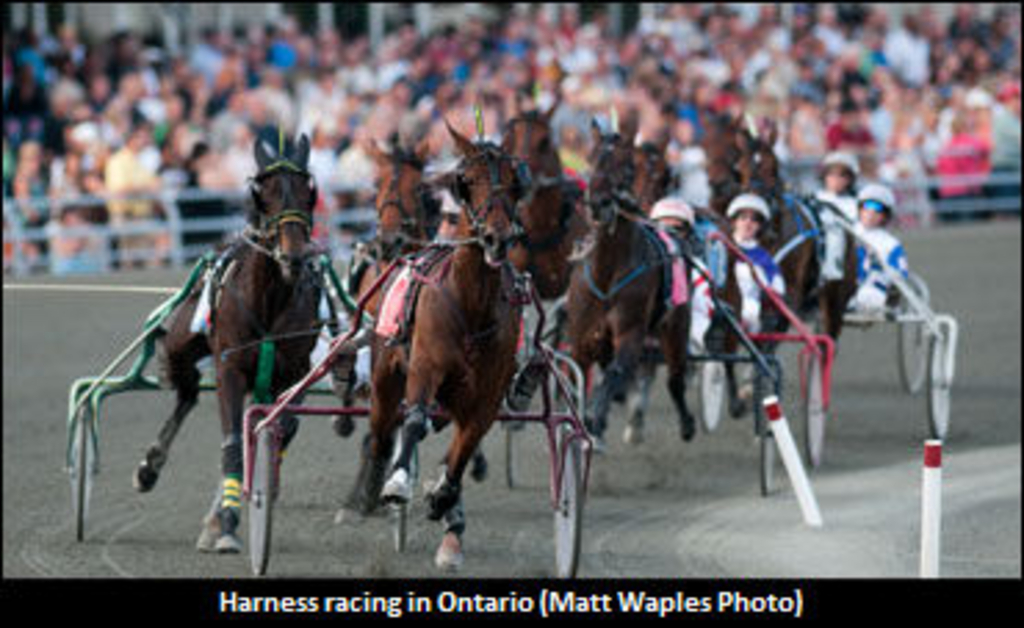
Last week during question period at Queen’s Park, Ontario Minister of Finance Charles Sousa responded to questions about how rural racetracks and rural horsepeople are represented in the new long-term funding plan for the Ontario horse racing industry.
“We have now concluded a $105-million, 19-year contract which will enable the horse racing industry to have funding,” said Minister Sousa. “We’re enhancing what is called the Enhanced Horse Improvement Program, extended year-over-year by OMAFRA. We have a new Racetrack Sustainability and Innovation Fund of $6 million over three years to support those smaller tracks and expanded resources of revenue. And we have an additional funding arrangement supplement with the racetracks [that may experience] financial shortfalls which enables long-term decisions in the racing community.
“Furthermore, we are providing a new board – the Ontario Racing Board – which will actually oversee the funding improvements and enable the service provider to be determined. On that board will be small tracks and horsepeople to ensure that everyone is properly represented.”
Minister Sousa’s comments came after a question from NDP MPP Taras Natyshak, who stressed that rural tracks and rural horsepeople have not been given enough time to analyze the deal. A deadline of May 1 has been set for tracks to agree to the deal for long-term funding.
An article by The Peterborough Examiner explains that one of the rural tracks in question, Kawartha Downs, is not committing to holding a 2018 meet of live racing until it secures a long-term deal with the province. "Let's take the time to make sure if we're going to have a long-term funding agreement that everybody has all the information they need to make sound, reasonable decisions. And then have everybody have input into it to come up with the best deal we can," said Ontario Harness Horse Association General Manager Brian Tropea.
Kawartha Downs General Manager Orazio Valente also commented on the matter, stating, "We're looking to resolve a much bigger issue. I think OHHA is behind our efforts to make sure whatever agreement we sign is beneficial to Kawartha Downs and the local racing community."
Blackburn News has run an article stating that the long-term deal will have a negative effect on rural tracks. Tropea stated that the rural horse racing industry cannot survive or thrive with the current level of funding. “That entire end of the province between Hiawatha, Dresden and Leamington, they only have 45 days of racing in that whole end of the province over the course of the year and they’re capped at $35,000 a day in allocated purse money,” he stated.
Additionally, the Lakeshore Horse Racing Association, which operates live racing at Leamington Raceway, has announced that it has ‘declined to be pressured’ into signing the long-term funding agreement.
As a follow-up question in the legislature, Natyshak claimed that Ontario is forcing horsepeople and tracks to sign off on the agreement by May 1, characterizing the date as an “arbitrary rush.”
Minister Sousa, in response, reiterated that rural horsepeople and rural tracks have representation on the Ontario Racing Board.
“We’re ensuring that they (rural tracks and rural horsepeople) are having representation on the board. We’re ensuring that their voices are heard,” said Minister Sousa. “We’re ensuring that there is no oversight or monopoly on one racetrack over another. We are giving them the opportunity so that they are enabling themselves to be heard and make the appropriate decisions to fund on an ongoing basis. That is the purpose of having that oversight prior to giving the service provider the ability to make those changes. Furthermore, Woodbine had a declining receipt over time as the industry gets stronger. We need to support the small horse tracks. We need to support the horsepeople and the horsemen, and we have met with Thoroughbred, Standardbred and Quarter Horse industries.”
(With files from The Peterborough Examiner and Blackburn News)

